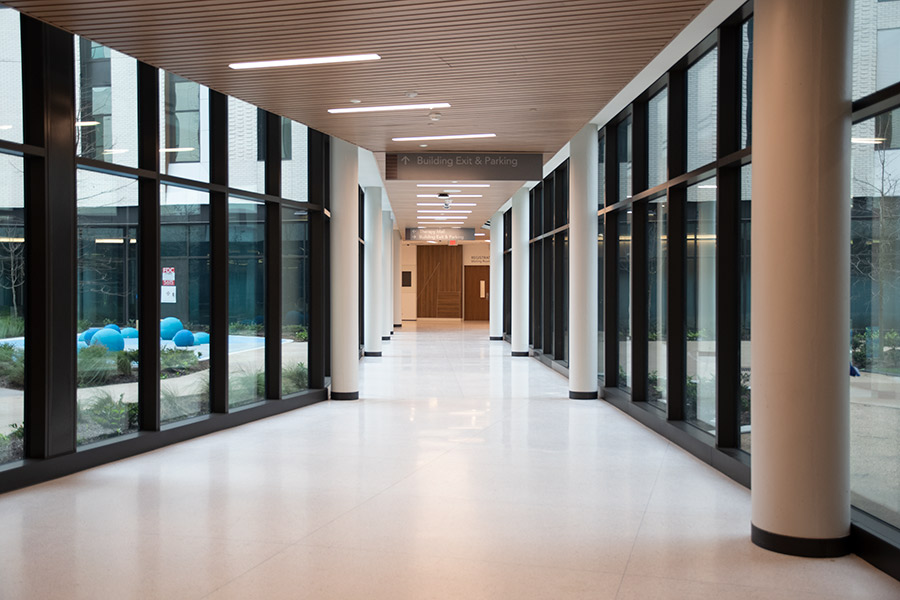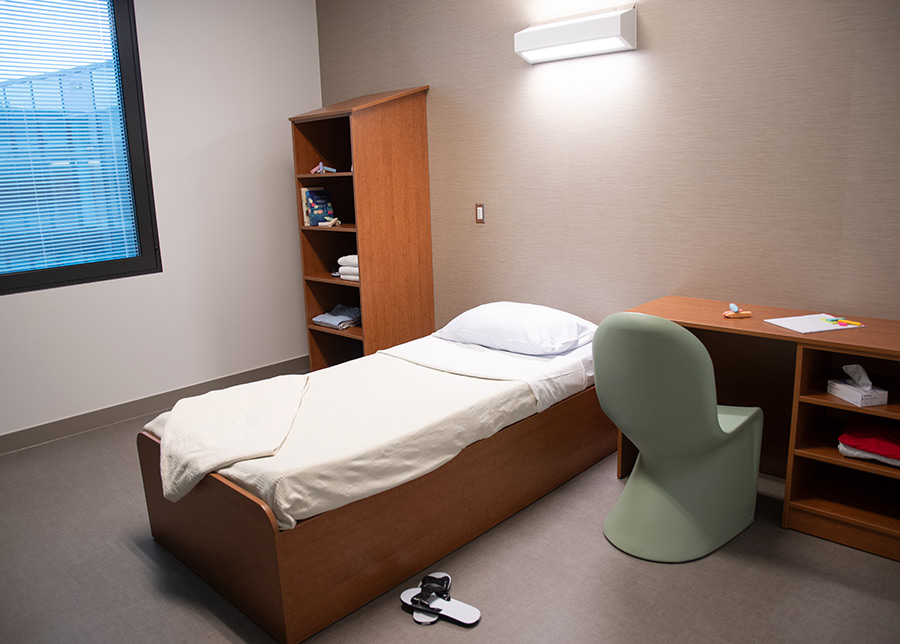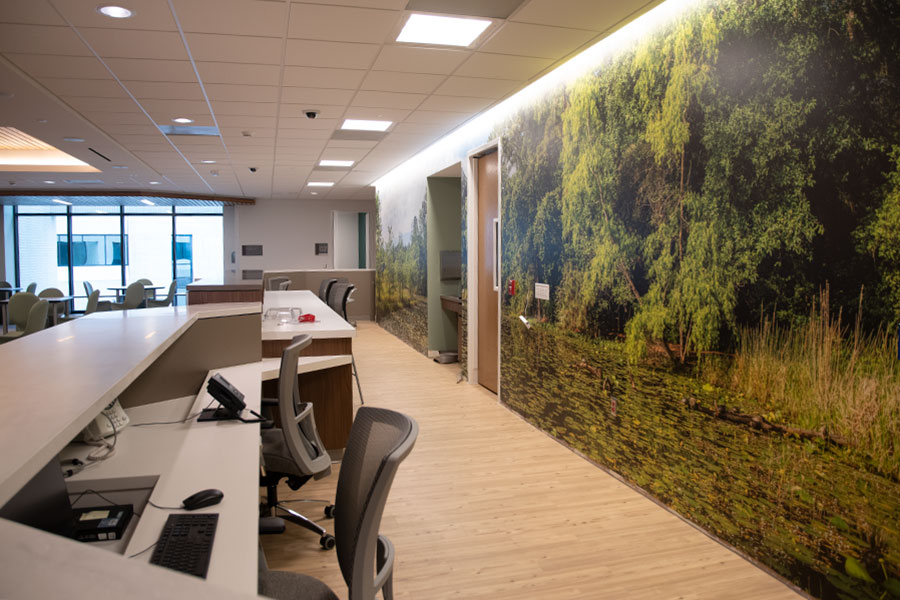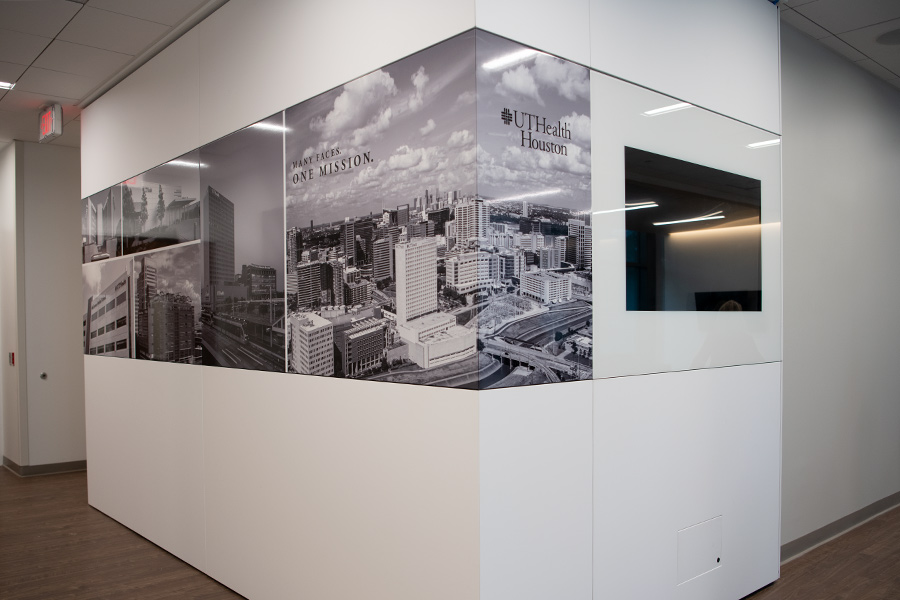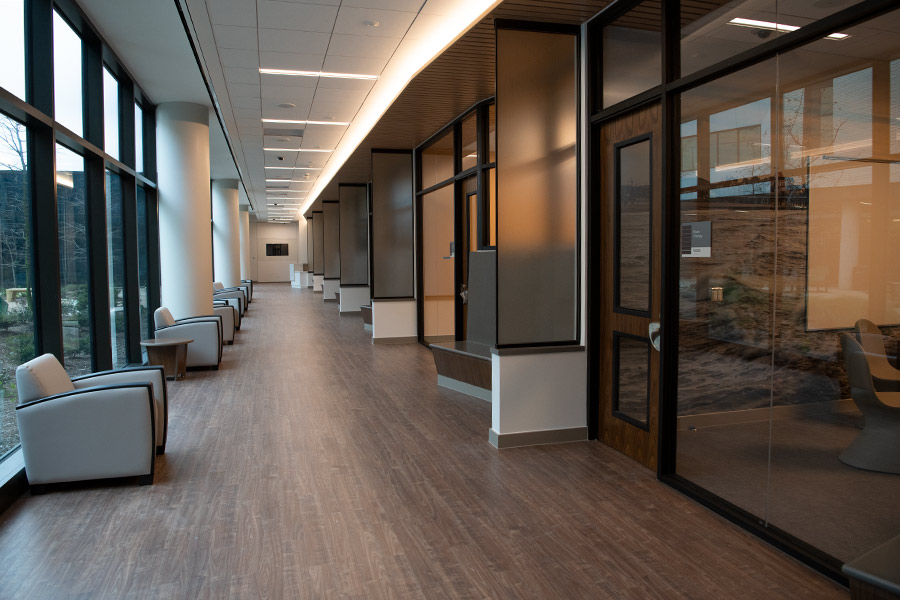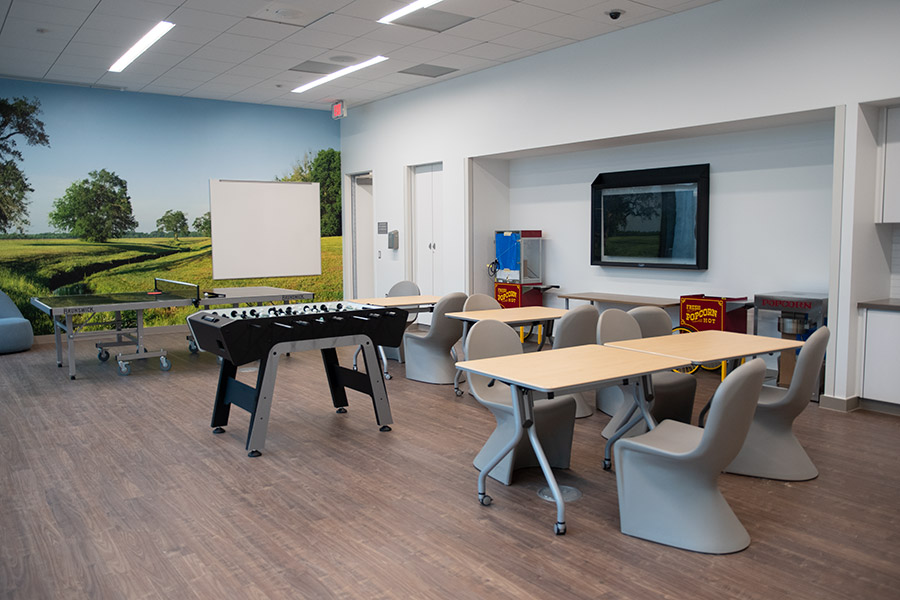Psychiatric hospital opens Monday
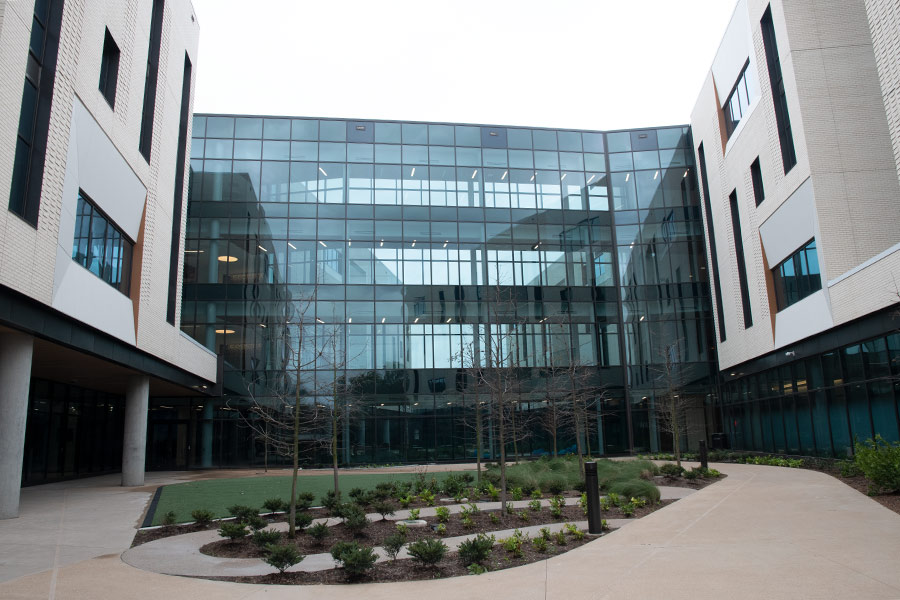
When academic psychiatric hospital the John S. Dunn Behavioral Center at UTHealth Houston opens to patients on Monday, March 28, it will devote its first beds to alleviating the backlog of care for competency restoration.
Competency restoration patients are those with mental illness who have been jailed. These patients undergo inpatient treatment to restore competency before a hearing before a judge. Remote hearings may be held via a special courtroom with tele networking access at the new hospital.
“Prior to the pandemic, there was a statewide backlog of 900 inmates needing restoration services,” said Stephen Glazier, COO of the new facility. “Now there are more than 2,300.”
The hospital’s first 48 beds will care of these patients, who are commonly jailed on misdemeanors and non-violent felonies. Nationally, inpatient treatment typically takes as long as six months, but the Dunn Center, based on its experience at UTHealth Harris County Psychiatric Center, expects be able to restore individuals within about 60 days.
The hospital serves a 29-county area and is a collaboration among UTHealth Houston, the Texas Health and Human Services Commission, and the Texas Medical Center. The Louis A. Faillace, MD, Department of Psychiatry and Behavioral Sciences oversees the operations of the building and the care of the patients. The hospital is a part of the larger UTHealth Houston Behavioral Sciences Campus.
The 264-bed facility was deliberately designed for the care of mentally ill patients, with careful attention to lighting and non-ligature fixtures, including special door handles and signage throughout the building.
“Safety is our utmost concern – the entire building is ligature resistant,” Glazier explained.
The new facility will offer both acute (where patients stay about 7 days) and sub-acute care (where patients stay about 60 days), as well as intensive outpatient and partial hospitalization services. This will create a complete, integrated continuum of care that is designed to achieve better outcomes for patients. The floors offer both single and double patient rooms, and the hospital’s unique Therapy Mall will provide specialized care, including music therapy, fitness, and even a salon.
“If you’ve been in the hospital for weeks, you’re going to need a haircut – and we all feel better after we get our hair cut,” Glazier added.
